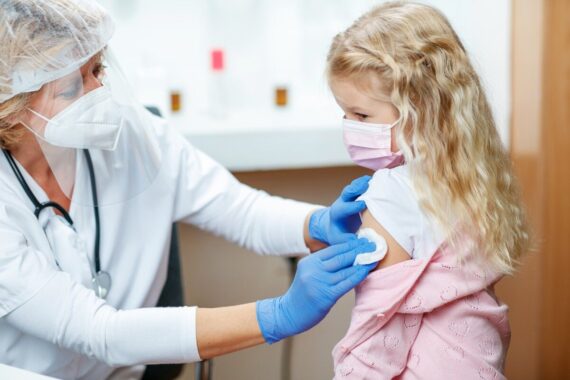UKHSA warns of possible measles outbreak unless MMR vaccination rates improve

The UKHSA has warned that unless MMR vaccination rates improve, London could see a measles outbreak ‘with tens of thousands of cases’.
Data published today by the UKHSA showed there has been a steady rise in measles cases this year and a new risk assessment also revealed the potential for a measles resurgence, particularly in London.
Between 1 January and 30 June this year there have been 128 cases of measles, compared to 54 cases in the whole of 2022, with 66% of the cases detected in London although cases have been seen in all regions.
The UKHSA assessment found that the risk of a measles epidemic across the UK ‘is considered low’, but with lower current levels of coverage in London, a measles outbreak of between 40,000 and 160,000 cases could occur in the capital.
It urged parents whose children missed out on MMR vaccination to come forward.
NHS England has launched a targeted national campaign to encourage uptake of the MMR vaccine, including ‘targeted outreach work’ in London for those identified as ‘at high risk’ and communities with the lowest uptake of vaccination.
All children at primary school who have missed one or both doses of the MMR vaccine are being offered the opportunity to get up to date at school.
Parents of younger children or those who are home-schooled can make an appointment with their GP practice or visit a community clinic.
UKHSA consultant epidemiologist Dr Vanessa Saliba said: ‘Measles spreads very easily but is preventable. To help protect ourselves, our families and those around us it is vital we all ensure we are vaccinated with 2 doses of the MMR vaccine, free on the NHS whatever your age.
‘Parents can check their children’s red book to see if they are up to date or if you’re not sure anyone can call their GP practice. It’s important everyone is fully vaccinated before travelling overseas this summer.’
Professor Kamila Hawthorne, chair of the RCGP, said: ‘Maintaining high vaccination rates is a top priority for GPs and our teams, and as a society, we mustn’t become complacent.
‘In 2017, the UK achieved measles elimination status, but unfortunately, this has been reversed in part by a lack of vaccination take up, and we have seen more cases of measles this year so far, than in the whole of 2022.
‘We cannot stress enough how dangerous measles can be. Although it’s rare, the disease can be deadly and it also can result in life-changing health complications, particularly for children and the elderly.
‘The MMR vaccine has been proven to be safe and effective at giving people lifelong protection from the disease – and if parents have any reservations about its safety, they can ask their GP, or any member of their clinical practice team.’
Jane Clegg, regional chief nurse for the NHS in London said: ‘Measles can easily spread between unvaccinated people and can be serious, but it is preventable, which is why we continue to encourage Londoners to take up the vaccine – with GPs calling over 10,000 parents of unvaccinated children, and hundreds booking appointments to get vaccinated as a result.
‘Cases of measles in the capital remain low but it’s really important that people check that they, and their children, are up to date with their jabs and protected against MMR – and if you have any questions or concerns, please get in touch with your GP practice or local pharmacist for advice. Now’s the time to act to protect yourself and loved ones from measles.’
Figures published in September last year showed no routine childhood vaccination met the 95% uptake target last year in England.
But there has been particularly concern about MMR with catch up campaigns already launched last Autumn.
Last month, UKHSA’s director of public health programmes Dr Mary Ramsay said that workload around vaccine delivery ‘fell purely onto general practice’ in the past decade due to the fragmentation of the NHS.
Visit Pulse Reference for details on 140 symptoms, including easily searchable symptoms and categories, offering you a free platform to check symptoms and receive potential diagnoses during consultations.











